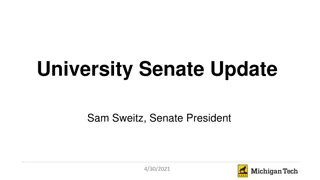Understanding GPSS Senate: Roles and Responsibilities
The GPSS Senate plays a crucial role in advocating for graduate and professional students at the university. Elected members represent various academic units and work towards supporting scholarship, education, and research. The Senate Executive team, along with Student Government Senators, ensures effective communication and addresses important issues within the student body. GPSS Senators are elected from departments/programs to voice concerns and keep constituents informed.
Download Presentation

Please find below an Image/Link to download the presentation.
The content on the website is provided AS IS for your information and personal use only. It may not be sold, licensed, or shared on other websites without obtaining consent from the author. Download presentation by click this link. If you encounter any issues during the download, it is possible that the publisher has removed the file from their server.
E N D
Presentation Transcript
GPSS SENATE INTRODUCTION September 3, 2019
About the Senate 2 An Introduction
What is GPSS? 3 Advocates for Graduate and Professional Students to the University Supports scholarship, education, and research Elected body of Graduate and Professional Students Represents all graduate and professional academic units
Agenda for Current Academic Year 4 Specific objectives for this year: Childcare Taskforce Graduate and Professional Student Mental Health Graduate/Professional Student Resource Awareness Improve Communication Between Students and Administration Improve Senator Involvement in GPSS 1. 2. 3. 4. 5.
GPSS Executives 5 Elected from and by the Senate Do not vote, with the exception of the Vice President in the case of a tie Represents Senate when the Senate not in session Reports all of its activities to the Senate Is able to act on behalf of the Senate if action required prior to next session and a special session is unable to meet Is composed of the President, Vice President, Treasurer, Chief Information Officer, University Relations and Legislative Affairs Chair, Professional Advancement Grant Chair, and Graduate and Professional Student Research Conference Chair
Student Government Senators 6 Represent the graduate and professional student body as a whole on the Student Government Liaison between Student Government and GPSS Elected to Student Government by the graduate student body Vacancies may be filled by appointment by the GPSS President or by a bill approved by the Senate.
GPSS Senators 7 Elected from departments/programs Each Senator holds one vote Addresses important issues of his/her constituents, and communicates concerns of constituents to GPSS Keeps constituents informed of GPSS events, deadlines, and proceedings Should meet with departmental/program administration each semester Communicate any issues with the URLA Chair
GPSS Senators: Attendance 8 Attendance policy is based on a points system Missing a meeting with no substitute: 1 point Missing a meeting with a substitute: 0.5 points Two (2) points against a senator warrants notification to the senator by the Elections Committee. Three (3) points over the academic year results in dismissal of the senator. The CIO and Vice President should be notified of a sub/absence at least 24 hours in advance.
How can you help? 9 Listen to concerns that students in your programs may have Bring issues concerning graduate and professional student life on campus to the Senate Share information from GPSS with your constituents Be active in Senate to ensure that your program s voice is heard Join Committees Take part in debate Discuss concerns or events in Open Forum
Senate Rules 10 Constitution: Governing Document Articles of Cooperation: Agreements with Student Government GPSS By-laws: Outlines many of the procedures of Senate Elections Procedures Budgeting and Allocations Delinquency, Resignation, and Removal of Senators/Executive Council Requirements for Standing and Special Committees
Senate Rules 11 Standing Rules: Outlines procedure for Senate meetings Limits on speaking time Limits on debate time Rules for discussing, debating, and amending legislation Robert s Rules of Order, Newly Revised PAG Policies and Procedures Documents may be found at https://www.gpss.iastate.edu/current- senate/governing-documents
About the Senate 12 Meetings
Before the Meeting 13 Agenda, Executive Reports, Previous Minutes, and any potential legislation are usually sent out a week before the Senate Meeting Agenda outlines what will happen, and when Executive reports contain activity of the executive council since the previous Senate meeting, and will be described during the meeting. The Minutes outline what happened in the meeting, and must be approved at the next meeting. Look through distributed material before coming to Senate Meetings!
The Senate Meeting 14 Call to Order Roll Call: Previously done with clickers; working on a new solution Select Sub if you are subbing for the normal senator, else select Yes Determination and statement of quorum Approval of previous minutes Solicitation for amendments to the agenda, and approval of the agenda
The Senate Meeting 15 Open Forum Typically University administrators who have information pertinent to graduate and professional students Officer Reports Outline of reports from Executive Council Report from Graduate Student Student Government Senators Reports from any Special Committees
The Senate Meeting 16 Unfinished Business Tasks that were unfinished from the previous meeting, either due to lack of time or because of postponement during a previous meeting New Business Business is undertaken in the order listed in the agenda as adopted during the Call to Order After business listed on the agenda is completed, any Senator may make a motion to introduce new business
The Senate Meeting 17 Senate Forum Open discussion time Roll Call and Announcements Senators must be present at the start and end of the meeting Adjournment
About the Senate 18 Senate Legislation and Debate
New Business: Legislation 19 Bills: Binding Legislation, Requires action of the Senate Amend Constitution and By-Laws Introduce new or modify/repeal existing policies, rules, and procedures Approve special and regular allocations (must be reviewed by Finance committee) Approval of all financial issues
New Business: Legislation 20 Orders: Binding Legislation, Requires action of the Senate Appointing of senators to SG graduate senators at-large Enforcing or changing rules of conduct within Senate jurisdiction Resolutions: Non-binding, conveys opinions of the Senate to outside groups, departments, etc. Recognize people, places, events, or issues Request for removal of senator or executive council member
Writing Legislation 21 Decide on appropriate bill type Find Senators to co-author and help draft legislation Use template found on GPSS website Use descriptive but concise title Include relevant whereas statements describing issue Implementation should be clearly described in enacted , ordered , or resolved clause
Submitting Legislation 22 Drafted legislation must be submitted to Rules committee for review Submitted 12 days prior to Senate meeting Send to gpssvicepresident@iastate.edu Rules committee finds legislation favorable, unfavorable, or unbiased with respect to the GPSS Constitution and By-Laws Rules committee will provide opinion to author(s) if bill is found unfavorable Provide basic feedback on how to improve draft of legislation The author(s) do not have to make changes suggested by Rules committee
Senate Discussion and Debate 23 Obtaining the Floor Wait for the current speaker to finish speaking Raise your placard Wait for the Chair to recognize you Keep debate civil and respectful Debate should be directed through the Chair If you have a question on how to do something, ask! Mr. President, I have a parliamentary inquiry
Useful Terms/Motions for Debate 24 Modifying legislation: May insert, strike out (remove), or strike out and insert (substitute) words I move to (add/remove) the following words I move to strike outthe words and in their place, insert . Must be seconded Is debatable (debate must be confined to the amendment) May usually be amended Requires a majority vote
Useful Terms/Motions for Debate 25 Referring to a committee Useful when a main motion requires substantial amending or redrafting May be a main motion to submit new tasks to a committee Special Committees (ad hoc committees) may be formed to consider new tasks I move to refer the question to a committee of five senators to be appointed by the URLA chair. Must be seconded, is debatable, and may be amended Requires a majority vote
Useful Terms/Motions for Debate 26 Limiting/Extending Debate: I move that Debate be closed after 20 minutes Debate be limited to three minutes per speaker Senator Doe s time be extended by three minutes Time for debate be extended by ten minutes Must be seconded, amendable, and cannot be debated Requires a two-thirds vote to pass
Useful Terms/Motions for Debate 27 Calling the previous question Ends debate and stops amendments of the immediately pending question to put the question to a vote Must be seconded and cannot be debated or amended Requires a two-thirds vote Postponing to a certain time Used to delay a question to a later time or meeting Must be seconded, and may be debated or amended Requires a majority vote
Useful Terms/Motions for Debate 28 Point of order Used to enforce rules, e.g. A senator is speaking out of turn or interruption someone An amendment to a motion is not germane (relevant) May interrupt speaker, ruled on by the Chair Request for information Request for information from the Chair Parliamentary inquiry (question about rules) Request for information (relevant to the business at hand)
Useful Terms/Motions for Debate 29 Appealing the Chair May be used to appeal a ruling by the Chair. Must be seconded. A majority vote is required to overturn the Chair. Calling for recess Short break during proceedings. Must be seconded, not debatable, length of recess may be amended, requires a majority vote. Calling for adjournment Ends the meeting. Must be seconded, cannot be amended or debated, and requires a majority vote.
Voting 30 Unanimous Consent Useful for fast voting when no objection is anticipated, e.g. setting the agenda If there is no objection Voice Vote Typical method of asking for those in favor (aye) and those opposed (no) Rising Vote As above, but by raising placards instead of by voice (for close votes) Roll Call (or similar vote via electronic system) Numeric vote of motion. Senator votes are recorded in the minutes.
President 31 Eleanor Field gpsspresident@iastate.edu
Duties of the President 32 Sets agenda for and preside over Executive Council Meetings Represents GPSS in the Graduate Council Assumes risk management officer responsibilities for the organization Supervises the internal operations of the Senate Sits on the Special Student Fee and Tuition Committee Sits on the Memorial Union Board of Directors
Vice President 33 James Klimavicz gpssvicepresident@iastate.edu
Duties of the Vice President 34 Presides over sessions of the Senate Assumes responsibilities of the President in her absence Sets the agenda for Senate meetings Chairs the Rules Committee Chairs the Social Committee Organizes the Graduate Student orientations and Fall and Spring socials Do you like planning social events or rules? (Or both?) Please contact James at gpssvicepresident@iastate.edu
Treasurer 35 Rui (Michael) Ding gpsstreasurer@iastate.edu
Duties of the Treasurer 36 Collects income and keep a record of finances Disburses funds as approved by Senate Bills Attends Treasurer s training Chairs the Finance Committee Seated on the Special Student Fee and Tuition Committee
Finance Committee (FC) 37 Overseen by the Treasurer There are 3 times when the FC has to gather: Fall Allocations (early October) Budget (January) Spring Allocations (early March) Otherwise, FC has been conducted via e-mail and other electronic means (Thus, FC members need to have a habit of checking e-mail frequently) Want to be a part of the Finance team? Please contact Michael gpsstreasurer@iastate.edu
Chief Information Officer 38 Ozlem Karakaya gpsscio@iastate.edu
Duties of the Chief Information Officer 39 Chairs the Elections and Operations Committee Co-chairs the Marketing and Public Relations Committee Maintains GPSS webpage, social networks, and e-mail lists Distributes and keeps current Senate information Keeps a record of attendance at Senate Meetings Conducts roll call votes Want to be a part of the Elections and Operations team? Please contact Ozlem gpsscio@iastate.edu
Elections and Operations Committee 40 The Election and Operations Committee is responsible for ensuring that all Senate positions are filled. All questions regarding GPSS membership are directed to the Elections Committee. Supervises elections of Senators and Executive Council members. Supervises special elections needed to fill vacancies. Maintains a record of attendance at all Senate sessions and notifies Senators as well as their academic units of their nonattendance. Makes policy decisions on website design and content. Updates GPSS website and social media accounts. Designs all publicity materials for GPSS. Advises GPSS on processes to streamline and simplify Senate activities.
University Relations/Legislative Affairs Chair 41 Marcus Jansen gpssurla@iastate.edu
Duties of the URLA Chair 42 Chairs the University Relations and Legislative Affairs Committee Advocates for graduate and professional students to university administration and local, state, and federal officials Seated on the Faculty Senate Records meeting notes during Senate meetings Represents GPSS on the Resource Management Model Student Affairs Advisory Committee Want to be a part of the URLA team? Please contact Marcus gpssurla@iastate.edu
Professional Advancement Grant Chair 43 Qi Mu gpsspag@iastate.edu
Duties of the PAG Chair 44 Reviews and allocates funding for professional advancement grants according to Senate-approved guidelines Reviews nominations for student awards Reviews nominations for the Margaret Ellen White Faculty award, and forwards top nominations to the Graduate College Want to be a part of the PAG team? Please contact Qi gpsspag@iastate.edu
GPSS Conference Chair 45 Abigail Kropf gpssconfchair@iastate.edu
Duties of GPSRC Chair 46 Responsible for planning and executing the GPSRC, including Inviting guests, planning workshops and panels, calling for abstracts, inviting and creating fair judging panel, managing event logistics and public relations. Chairs the GPSRC Committee Co-chairs the Marketing and Public Relations Committee Drafts conference budget and working with different colleges, the Senate and other resources get funding. Maintains the financial accounts and reports the updates to the GPSS Treasurer. Want to be a part of the GPSRC team? Please contact Abigail gpssconfchair@iastate.edu
What is GPSRC? Next year s GPSRC: April 8th, 2020 47 Graduate and Professional Student Research Conference. Brings together students from every college at Iowa State University. Present their research and share ideas with others who do not specialize in their areas. Platform for collaboration and diffusion of knowledge.



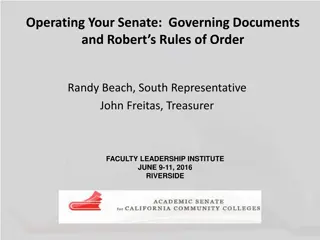
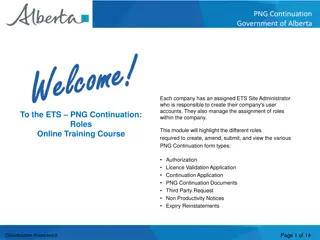
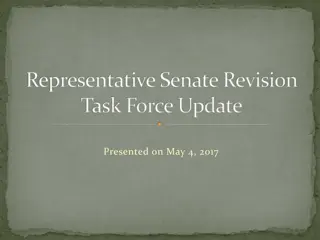
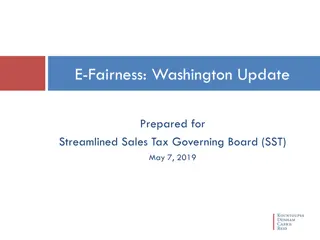
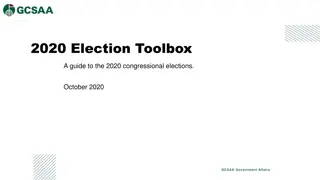
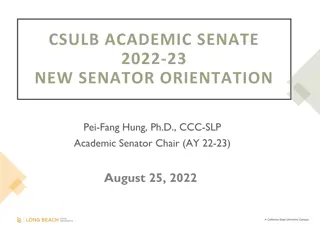
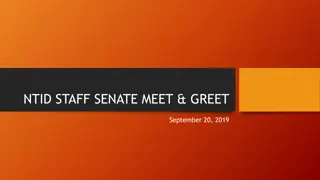
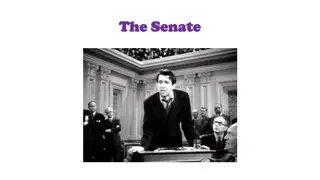
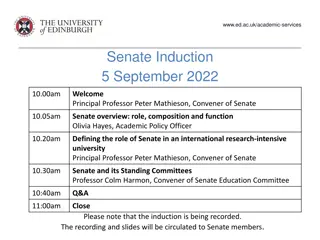
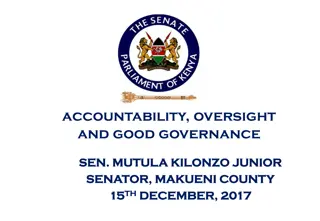
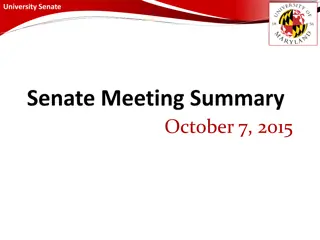
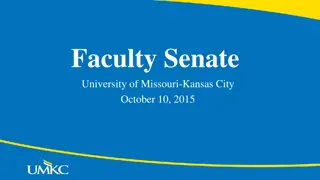
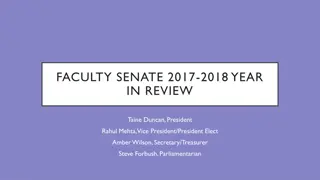
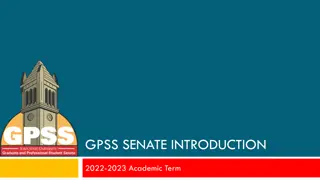
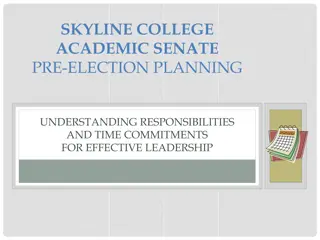
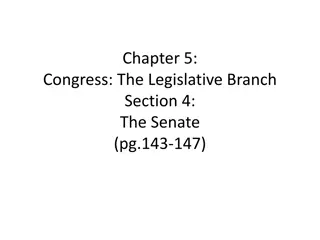
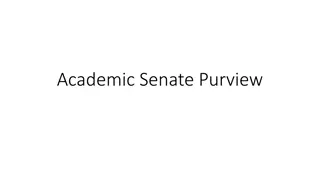
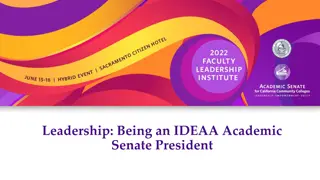
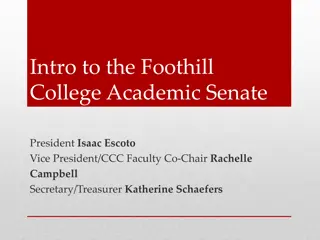
![Overview of the Faculty Senate at [Institution Name]](/thumb/233771/overview-of-the-faculty-senate-at-institution-name.jpg)
